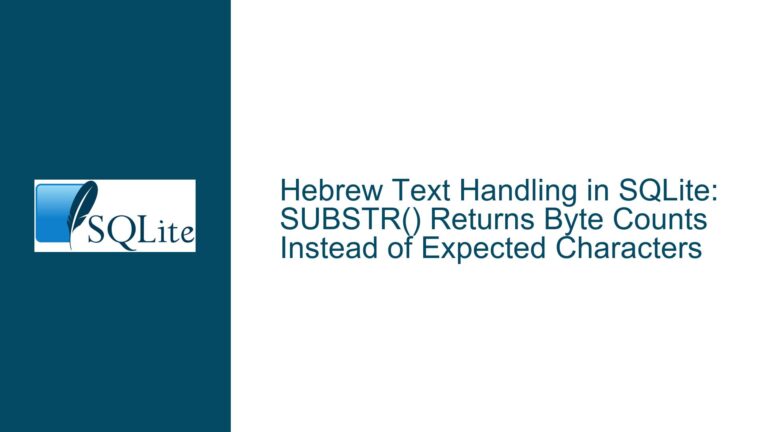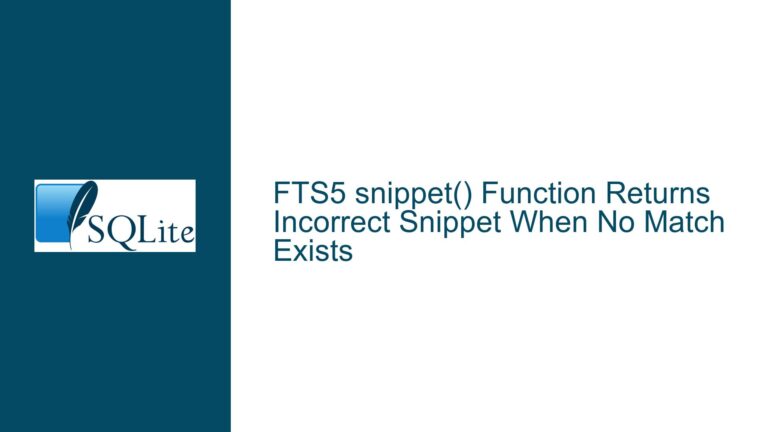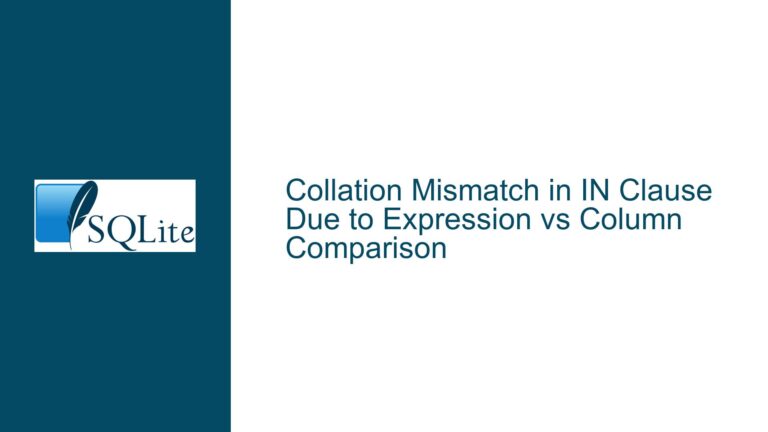Hebrew Text Handling in SQLite: SUBSTR() Returns Byte Counts Instead of Expected Characters
Issue Overview: Mismatch Between Expected and Actual Character Counts in Hebrew UTF-8 Strings The core issue arises when working with Hebrew text stored in SQLite databases, where functions like SUBSTR() and LENGTH() return values that appear to count bytes rather than "logical characters." This is particularly confusing when dealing with Hebrew vowels (niqqud), cantillation marks,…









